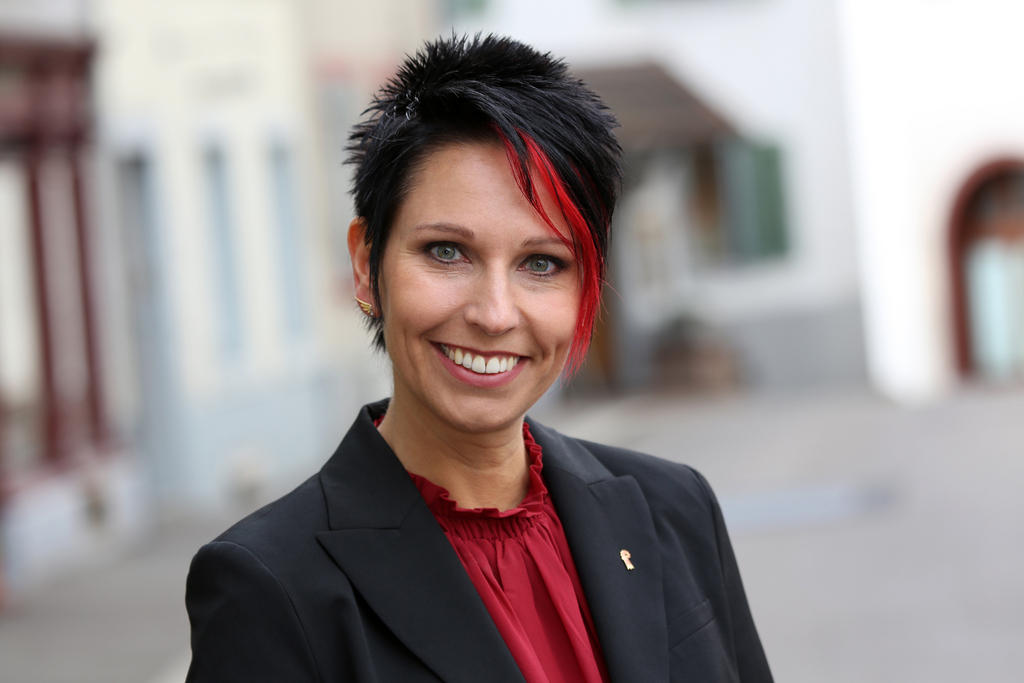‘Asylum law revision heads in wrong direction’
The revised asylum law, which will be up for a vote on June 5, sends the wrong signals and makes Switzerland even more attractive for immigrants, says Sandra Sollberger, a member of the House of Representatives for the Swiss People’s Party.
Switzerland needs more systematic border controls as well as an improved system to repatriate illegal immigrants, she argues.
True refugees, who have to fear for their lives and limbs, should certainly receive aid and protection – there is no question about that. It corresponds to Switzerland’s long-standing humanitarian asylum tradition, which we certainly want to keep up.

When it comes to illegal migrants and economic refugees though, we simply have no space for them.
Our country must not and cannot become more attractive for illegal migrants and economic refugees; however, by offering asylum seekers unconditional pro bono legal services, we actually achieve the opposite. This goes just too far and sends the wrong signals. The fact that the revised law entitles the federal government to carry out expropriations in order to build asylum centres is equally unacceptable.
Under the revised asylum law parliament adopted last year, the following provisions will be made: all asylum seekers, including illegal economic and social refugees, will be entitled to receive pro bono legal services unconditionally.
This will put them in a better position than any Swiss citizen. Such a provision will not only contradict the principle of equality laid down in the Swiss Constitution, it will also lead to numerous appeals, higher costs within the asylum system and an even laxer implementation of our asylum law.
For the construction of new asylum centres, the federal government will be entitled to expropriate the land and buildings of cantons, communities as well as private persons. Under this new law, the property rights as well as the autonomy of cantons and communities, which are also laid down in our constitution, will be thrown out of the window.
The revision will allow more migrants to stay in our country, regardless of whether their lives are at risk or not. But it does not make any provisions to facilitate expelling applicants whose applications have been rejected. On the contrary, an increasing number of applicants who have been denied asylum will stay in the country. It is becoming increasingly difficult to expel them. The authorities are more concerned with arriving migrants and less with consistently executing legal regulations.

More
Political right tries to block asylum reform
Switzerland still attractive
Last year, around 40,000 people applied for asylum in Switzerland. The number of applications has only been higher in three other years: in 1991 during the Balkans War, as well as in 1998 and 1999 during the war in Kosovo. Nowadays, most applicants come from Eritrea, North Africa or Afghanistan. Asylum seekers from these countries usually don’t have to fear for their lives and limbs. There are mainly economic and social migrants!
The present revision does not support the fight against abuse. On the contrary, it makes Switzerland even more attractive for illegal immigrants. Pro bono legal services are not the only pull; Switzerland also offers a comprehensive healthcare system, social services and free language courses at the expense of Swiss taxpayers.
Solving the implementation problem
Switzerland must pursue an independent humanitarian asylum policy that does not allow abuse. The Schengen Agreement has made effective border controls a thing of the past. We can no longer afford such open borders and we need to reintroduce systematic controls. This is the only way to stop illegal migrants and get rid of smuggling rings.
We must make Switzerland less attractive for illegal immigrants as well as introduce an effective system for the repatriation of pure economic refugees and other illegal migrants. The current applicable law offers a sufficient basis to achieve that, however, implementation is the problem. For this reason, we have to force the relevant authorities to act consistently and lawfully – and a way to achieve this is to reject the revised asylum law.

More
‘We need to solve problems in our asylum system, not create them’
The views expressed in this article are solely those of the author, and do not necessarily reflect the views of swissinfo.ch.
Opinion series
swissinfo.ch publishes op-ed articles by contributors writing on a wide range of topics – Swiss issues or those that impact Switzerland. The selection of articles presents a diversity of opinions designed to enrich the debate on the issues discussed.

In compliance with the JTI standards
More: SWI swissinfo.ch certified by the Journalism Trust Initiative










You can find an overview of ongoing debates with our journalists here . Please join us!
If you want to start a conversation about a topic raised in this article or want to report factual errors, email us at english@swissinfo.ch.